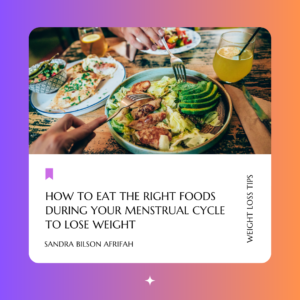Weight loss can feel like an uphill battle, especially when you’re doing everything right but not seeing the results you want. The truth is, your hormones play a significant role in how your body loses weight, and understanding them can be a game-changer. In this blog post, we’ll dive into the key hormones that affect weight loss and the activities that can help you balance them. Let’s make this journey easier and more effective!
1. Insulin: The Blood Sugar Regulator
What It Does: Insulin is a hormone produced by the pancreas that allows your body to use sugar (glucose) from carbohydrates in the food you eat for energy or to store glucose for future use. It’s crucial for regulating blood sugar levels.
Why It Matters: When insulin levels are balanced, your body can efficiently use glucose for energy, which prevents excessive fat storage. However, high insulin levels can lead to weight gain and insulin resistance, making weight loss more difficult.
Activities to Balance Insulin:
- Eat Balanced Meals: Include a mix of protein, healthy fats, and complex carbohydrates in every meal. This helps maintain stable blood sugar levels.
- Example: Grilled chicken with quinoa and a side of mixed vegetables.
- Regular Physical Activity: Engage in both strength training and cardio exercises. These activities help your body use glucose more efficiently.
- Example: Try a mix of weightlifting and brisk walking or cycling.
- Avoid Excessive Sugar and Refined Carbs: Limit foods that cause rapid spikes in blood sugar, such as sugary snacks and white bread.
- Example: Swap soda for water or herbal tea, and choose whole grains over refined grains.
- Stay Hydrated: Drinking plenty of water helps maintain healthy blood sugar levels.
- Example: Aim for at least 8 cups of water a day.
2. Leptin: The Satiety Hormone
What It Does: Leptin is produced by your fat cells and helps regulate energy balance by inhibiting hunger. It tells your brain when you have enough fat stored and can stop eating.
Why It Matters: When leptin levels are balanced, you feel full and satisfied after eating. However, leptin resistance, where the brain doesn’t respond to leptin signals, can lead to overeating and weight gain.
Activities to Balance Leptin:
- Eat a Fiber and Protein-Rich Diet: Foods high in fiber and protein help you feel full longer and regulate leptin levels.
- Example: Include beans, lentils, lean meats, and whole grains in your meals.
- Regular Exercise: Physical activity improves leptin sensitivity, helping your brain recognize when you’re full.
- Example: Incorporate activities like running, swimming, or strength training into your routine.
- Ensure Adequate Sleep: Poor sleep can disrupt leptin levels, making you feel hungrier.
- Example: Aim for 7-9 hours of quality sleep each night.
- Avoid Overly Restrictive Diets: Extreme diets can lower leptin levels, making you feel hungrier and less satisfied.
- Example: Follow a balanced diet that includes a variety of foods in moderation.
3. Ghrelin: The Hunger Hormone
What It Does: Ghrelin is produced in the stomach and stimulates appetite, increasing food intake and promoting fat storage.
Why It Matters: Balanced ghrelin levels help regulate hunger and prevent overeating. High levels of ghrelin can make you feel constantly hungry, leading to weight gain.
Activities to Balance Ghrelin:
- Eat Meals at Regular Intervals: Eating regularly helps keep ghrelin levels stable.
- Example: Don’t skip meals; aim for three balanced meals a day with healthy snacks if needed.
- Consume High-Fiber Foods: Foods rich in fiber help keep you feeling full and reduce ghrelin levels.
- Example: Snack on fruits, vegetables, and whole grains.
- Get Sufficient Sleep: Lack of sleep can increase ghrelin levels, making you hungrier.
- Example: Create a bedtime routine that promotes restful sleep.
- Manage Stress Effectively: High stress can increase ghrelin levels.
- Example: Practice stress-reducing techniques like meditation, yoga, or deep breathing exercises.
4. Cortisol: The Stress Hormone
What It Does: Cortisol is produced by the adrenal glands and is released in response to stress. It helps control blood sugar levels, regulate metabolism, and reduce inflammation.
Why It Matters: Chronic high levels of cortisol can lead to weight gain, particularly around the abdomen. Managing cortisol levels is crucial for weight loss.
Activities to Balance Cortisol:
- Manage Stress: Incorporate stress-reducing activities into your daily routine.
- Example: Practice yoga, meditation, or deep breathing exercises.
- Regular Physical Activity: Exercise helps reduce stress and lower cortisol levels.
- Example: Engage in activities you enjoy, like dancing, hiking, or swimming.
- Ensure Adequate Sleep: Poor sleep can increase cortisol levels.
- Example: Establish a regular sleep schedule and create a relaxing bedtime routine.
- Maintain a Balanced Diet: Avoid caffeine and sugar, which can increase cortisol levels.
- Example: Opt for a balanced diet with plenty of fruits, vegetables, and whole grains.
5. Adiponectin: The Fat-Burning Hormone
What It Does: Adiponectin is produced by fat cells and helps regulate glucose levels as well as fatty acid breakdown. Higher levels of adiponectin are associated with a lower risk of obesity.
Why It Matters: Adiponectin enhances your body’s ability to burn fat and use glucose effectively, promoting weight loss and improving metabolism.
Activities to Boost Adiponectin:
- Exercise Regularly: High-intensity interval training (HIIT) is particularly effective.
- Example: Incorporate HIIT workouts, such as sprinting or circuit training, into your fitness routine.
- Eat Healthy Fats: Include sources of healthy fats in your diet.
- Example: Avocados, nuts, seeds, and olive oil are great choices.
- Maintain a Healthy Weight: Keeping a healthy weight helps boost adiponectin levels.
- Example: Follow a balanced diet and regular exercise plan.
- Avoid Trans Fats and Highly Processed Foods: These can lower adiponectin levels.
- Example: Choose whole, unprocessed foods whenever possible.
Encouragement and Next Steps
Balancing your hormones through these targeted activities can significantly enhance your weight loss efforts and lead to better, more sustainable results. It’s not just about diet and exercise; it’s about creating a holistic approach to your health and well-being.
Remember, you’re not alone in this journey. Reach out for support and guidance to ensure you’re on the right path. Consider working with a healthcare professional or wellness coach who can provide personalized advice and help you stay motivated.
Ready to transform your life? Join Sandra Bilson Afrifah and start your personalized wellness journey today. Together, we’ll balance your hormones, achieve your weight loss goals, and unlock a vibrant, energetic life you deserve. 🌿✨
👉 Sign up now to take the first step towards a healthier, happier you! #BalanceHormones #LoseWeight #LiveYourBestLife #SandraBAfrifah #ConfiHealthFit









